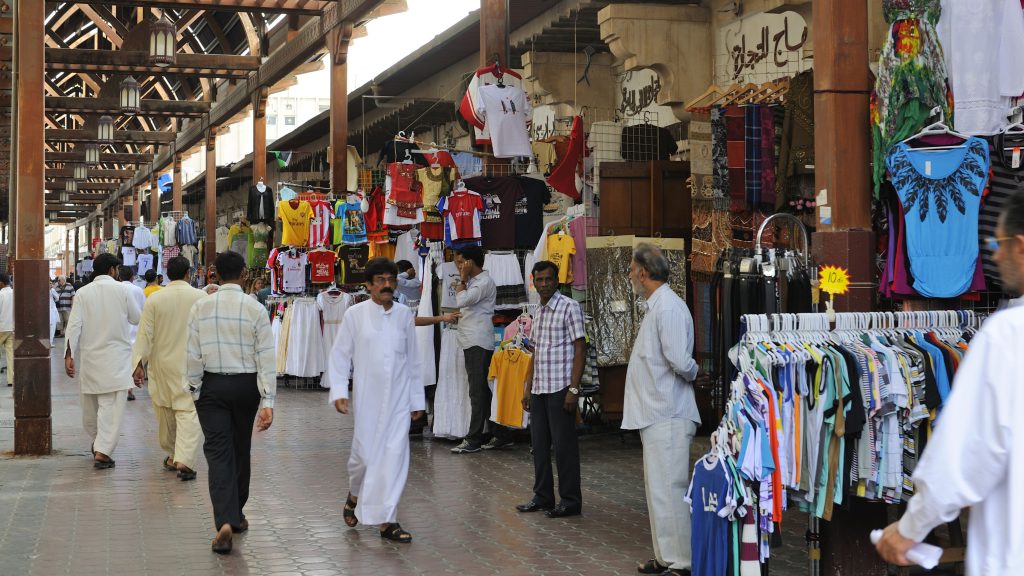Ever wandered through a gleaming Dubai mall and wondered where the city’s soul really lives? Beyond the air-conditioned luxury, Dubai’s traditional markets (or souks) offer a vibrant tapestry of sights, sounds, and scents that have endured for generations. Let’s explore these cultural treasure troves where you can still haggle for gold, inhale the perfume of exotic spices, and touch fabrics that tell stories of ancient trade routes.
The Gold Souk: Dubai’s Dazzling Alchemy of Commerce
No visit to Dubai is complete without losing yourself in the glittering lanes of the Gold Souk in Deira. This iconic market houses over 300 retailers displaying jewelry that would make a pharaoh blush. The sheer volume is staggering – experts estimate nearly 10 tons of gold are on display at any given time. What makes this souk special isn’t just the quantity, but the craftsmanship. You’ll find intricate 22-karat pieces alongside contemporary designs, all sold by weight with making charges negotiated separately.
The www.few.ae editor team recommends visiting in the early evening when the lights make the gold literally sparkle. Don’t miss the world’s heaviest gold ring (a Guinness record holder) at the intersection of the main lanes. Remember, bargaining is expected but maintain respect – these shopkeepers are often third-generation gold merchants with incredible expertise.
The Spice Souk: A Sensory Overload of Aromas
Just a fragrant stone’s throw from the Gold Souk, the Spice Souk assaults your senses in the best possible way. Towering sacks of saffron from Iran, cinnamon sticks from Sri Lanka, and rose petals from Oman create a kaleidoscope of colors and scents. Many shops have been operating since the 1940s, when Dubai first emerged as a regional trading hub.
Pro tip: Look for shops displaying whole spices rather than pre-ground powders for maximum freshness. The friendly vendors often offer samples of their premium dates or saffron tea – accept graciously, it’s part of the souk experience.
The Textile Souk: Where Fabric Dreams Are Made
Hidden in plain sight near the Dubai Creek’s Bur Dubai abra station, the Textile Souk offers a quieter but equally authentic experience. Over 150 shops overflow with silks from India, cashmere from Nepal, and the finest Egyptian cotton. What visitors often miss are the tiny tailoring shops upstairs where craftsmen can transform your fabric purchase into custom garments overnight.
Insider knowledge: The shops closest to the entrance cater to tourists with higher prices. Venture deeper into the covered alleyways for better deals and more interesting selections.
The Perfume Souk: Bottling the Essence of Arabia
While not as physically concentrated as other souks, Dubai’s perfume traders in and around the Deira markets offer an olfactory journey through Middle Eastern traditions. Here you’ll find pure oud oil (sometimes more expensive than gold), bukhoor incense, and custom fragrance blending that predates modern perfumeries by centuries.
Cultural note: Traditional Arabic perfumes tend to be oil-based rather than alcohol-based, making them longer-lasting on the skin. Don’t be shy about asking to test different combinations until you find your signature scent.
The Old Souk at Al Fahidi: A Gateway to the Past
Often overlooked by tourists rushing to the Gold Souk, the Al Fahidi Historical Neighborhood’s market offers a more curated traditional experience. The restored wind-tower architecture houses artisan shops selling handmade pottery, camel leather goods, and authentic Emirati crafts. This is where you’ll find meaningful souvenirs rather than mass-produced trinkets.
Historical context: Many shops here participate in initiatives to preserve dying Emirati crafts like talli embroidery and sadu weaving. Purchases directly support these cultural preservation efforts.

The Fish Market: Dubai’s Original Fresh Catch
For a truly local experience, visit the Deira Fish Market at dawn when the day’s catch arrives. While not a traditional tourist souk, this bustling marketplace reveals Dubai’s deep connection to the sea. Watch as fishermen auction their hauls to restaurant owners and housewives in a rapid-fire exchange. The adjacent cleaning stations will prepare your purchase to take home or cook at nearby eateries.
Practical advice: Wear closed-toe shoes as the floors can get slippery. The market’s second floor has excellent seafood restaurants where you can eat your purchases prepared to order.
Navigating Dubai’s Souks Like a Pro
To make the most of your souk experience:
- Time your visit for mornings or late afternoons to avoid the worst heat
- Carry small bills for easier bargaining
- Dress modestly out of respect for local customs
- Practice polite but firm negotiation – start at about 40% of the asking price
- Stay hydrated – many souks have hidden cafes serving karak chai
The Souk Experience Beyond Shopping
These markets aren’t just places to spend money – they’re living museums of Dubai’s mercantile heritage. Take time to chat with shopkeepers, many of whom can share fascinating stories about Dubai’s transformation. The scents of cardamom coffee drifting from a tiny café, the clink of tea glasses, the rhythmic calls to prayer echoing over the rooftops – these moments create memories far more valuable than any purchase.
For the most up-to-date information on market locations and special events, check the Dubai Culture and Arts Authority website before your visit. Remember, in Dubai’s souks, the journey matters as much as the treasures you’ll take home.
